The rarest color for German Shepherds is the Isabella-colored German Shepherd, also known as the lilac German Shepherd. Other rare colors include Blue, Gray, Liver, and White. The rarity of these German Shepherds has made them somewhat sought after, but when choosing a German Shepherd, it’s wise to prioritize health, temperament, and suitability for your needs over uncommon coat colors.
German Shepherd Dog
Breed Type: Herding
Common nicknames: GSD, Alsatian
Coat: Double
Hypoallergenic: No, they will likely trigger allergies.
Temperament: Loyal, high-energy, intelligent, independent
Life expectancy: 7-13 years
Color & patterns:

When it comes to loyalty, bravery, and intelligence, the German Shepherd is a force to be reckoned with. These regal pups are known for their striking good looks, their sharp minds, and fearless spirits. In fact, this large breed (which typically weighs between 50 and 90 pounds) may be best known for their athletic build and powerful presence, but they also excel at working jobs in the police and military, on search-and-rescue teams, as therapy dogs, and more. With their protective instincts and unwavering devotion, they make fantastic family pets. If you’re looking for a pup who’s ready to take on the world with you, the German Shepherd might just be the perfect fit.
German Shepherd Dog characteristics
Learn about about German Shepherd Dog basics like their fur colors, shedding levels, how much grooming they need, and other German Shepherd Dog facts.
Average height
22-26 inches (55.9-66.0cm)
Average weight
48-97 pounds (21.8-44.0 kg)
Average lifespan
7-13 years
Exercise needs
Grooming needs
Full-grown size
Good with cats
Good with kids
Training aptitude
What colors do German Shepherds come in?
The most common color German Shepherds come in is the classic black and tan. Other variations include sable (with a mix of black and gray or tan hairs), solid black, black and red (with reddish tan markings), bi-color (mostly black with lighter tan markings), and white (with or without light tan or cream markings). There are also liver-colored German Shepherds, but they are less common. Color variations do not impact German Shepherds’ intelligence, temperament, or working abilities.
How much do German Shepherds shed?
German Shepherds are moderate to heavy shedders who shed their topcoats year-round but shed their undercoats twice a year during seasonal changes. During these seasons, which are commonly known as “blowing their coat,” there is a significant increase in the amount of hair they shed. But regular grooming, including brushing, can help manage the shedding to some extent by removing loose hair and preventing mats.
How big do German Shepherds get?
Female German Shepherds stand 22 to 24 inches high and weigh 65 to 70 pounds, while Male German Shepherds are 24 to 26 inches high and weigh 80 to 90 pounds.
German Shepherds’ size vary between types as well. Working-line German Shepherds, for instance, might be slightly smaller and more lean, as they are bred for agility and performance. Show line Shepherds, on the other hand, may be larger and more robust, meeting specific breed standards for appearance.
How long do German Shepherds live?
German Shepherds typically live between 10 and 13 years, but factors such as genetics, diet, exercise, and healthcare play a crucial role in determining their lifespan. Regular veterinary check-ups, a balanced diet, and an active lifestyle can contribute to a longer and healthier life for your German Shepherd. Each dog is an individual, however, so there can be some variation in their lifespan.
When do German Shepherds stop growing?
German Shepherds usually stop growing between 18 to 24 months of age. However, they may continue to fill out and develop muscle tone after this point. During the first year, they experience rapid growth, and then their growth rate begins to slow down.
Are German Shepherds hypoallergenic?
No, German Shepherds are not considered hypoallergenic. They are known to trigger allergies in some individuals who are sensitive to pet dander. Their double coat, consisting of a dense undercoat and a longer, coarser outer coat, can release allergenic proteins into the environment.
Individual reactions to allergens can vary, so spending time with a German Shepherd before bringing one home can help assess any potential allergic reactions.
How many types of German Shepherds are there?
There's one breed of German Shepherd, but two main types (or bloodlines) within the breed: the working line and the show line. There are five types of German Shepherds within these two types: the West German Working Line, East German Working Line, Czech Working Line, American Show Line, and European Show Line.
German Shepherd Dog history
Learn about where this German Shepherd Dog came from!
What were German Shepherds bred for?
German Shepherds were originally bred for herding and guarding livestock, as their intelligence, strength, and agility made them excellent working dogs in the fields. Their adaptability and keen sense of loyalty also contributed to the breed being hardworking and devoted partners for people in a variety of tasks.
For example, 48,000 German Shepherds served in the German armed forces as message carriers, telephone line layers, and scouts in World War I. The Allied forces noted what a great aid they were to the Germans and brought back many to America and Great Britain.
German Shepherds’ capabilities extend beyond their historical roles, and they continue to excel in many modern roles and are beloved family companions today.
Where are German Shepherds from?
German Shepherds, as their name suggests, are from Germany. All German Shepherds are descendants of a small group of shepherd dogs from northwest Germany. In 1900, retired cavalry officer Max von Stephanitz established the German Shepherd Club and registered the world’s first “German Shepherd.”
German Shepherd Dog temperament
Learn about about the German Shepherd Dog temperament and how well they fit into your lifestyle, home environment, and family.
Are German Shepherds good with kids?
Yes, German Shepherds can be great family dogs when well-trained and properly socialized. These dogs are bred for obedience, so their fidelity to their family members, including babies and children, is paramount for them. They are loving and protective of those they spend a lot of time with but can be wary of strangers, so like with all dogs, their temperament around other children largely depends on whether or not you raise them to be friendly and sociable.
As with any breed, it is recommended that your child is always supervised when interacting with your German Shepherd to keep both the child and dog safe. Teaching children how to properly approach and handle dogs is also crucial to ensure positive experiences for both the dog and the child, as is teaching dogs how to interact gently with children.
Are German Shepherds aggressive?
No, German Shepherds are not inherently aggressive. Their behavior can be influenced by a variety of factors, including genetics, training, lack of socialization, and the environment in which they are raised. It’s crucial for German Shepherds to receive early and consistent training and socialization to ensure they become well-adjusted and social pups.
If you are concerned by any signs of aggression or reactivity in your dog, be sure to address it promptly with the help of a professional trainer or behaviorist. Pain, discomfort, or underlying medical conditions can sometimes contribute to changes in a dog’s behavior, so it may also be worth visiting a vet to rule out their health as a cause for signs of aggressive behavior.
Are German Shepherds easy to train?
Yes, German Shepherds are easy to train. These highly trainable dogs are at their best when their energy is directed into useful pursuits. Their alert, receptive temperament and keen intelligence make them very adaptable to learning. Just keep in mind that even if a certain dog breed is known to be easy to train, training any dog requires a long-term commitment.
Can a German Shepherd be left alone during the day?
Yes, German Shepherds can be left alone during the day, but they should not be left alone more than eight hours a day. Because they are a high-energy breed, they also must have sufficient exercise and mental stimulation. A tired dog is less likely to engage in destructive behavior out of boredom.
Do German Shepherds bark a lot?
Yes, German Shepherd Dogs bark a lot; they were bred to bark and alert. The amount they bark can vary from one individual to another and can be influenced by factors such as training, socialization, and the dog’s environment. These highly trainable pups can also be taught to curb their barking as well with positive reinforcement.
What is the best companion dog for a German Shepherd?
The best companion dog for a German Shepherd is highly dependent on the personality and temperament of the individual dog. But generally speaking, larger breeds such as Labrador Retrievers, Golden Retrievers, or Belgian Malinois can make excellent companions for German Shepherds because they share similar energy levels, intelligence, and friendly nature, making for a great dynamic duo.
Are German Shepherds good dogs?
Yes, German Shepherds can be excellent dogs when they are trained well and when matched with an active family. These pups require consistent training, socialization, and exercise, and, if not properly cared for or if they don't match a pet parent’s lifestyle, they can develop behavioral issues. So, while they can be great dogs, it's important to assess your own circumstances and readiness before getting a German Shepherd.
How smart are German Shepherds?
German Shepherds are renowned for their high intelligence. In fact, they consistently rank among the most intelligent dog breeds. Their intelligence is a key factor in their versatility and ability to excel in various roles, including as working dogs, police dogs, search and rescue dogs, and service dogs.
Are German Shepherds good family dogs?
Yes, German Shepherds can be great family dogs. With the right family, proper training, socialization, and exercise, these dogs are very friendly and loving. They can be extremely protective of their family and cautious of strangers, so they make marvelous protectors. However, they are a working dog breed, so they do best when given exercise and something to do on a regular basis.
Are German Shepherds good with cats?
Yes, German Shepherds can coexist peacefully with cats but requires early socialization, training, and careful monitoring. Because of their herding instincts and prey drive, some might not make the best companions to cats as they may spend most of their time chasing them. However, many German Shepherds are incredibly cat-friendly dogs.
German Shepherd Dog health
Learn about about the German Shepherd Dog health outlook and what diseases they may be prone to at various stages of their life.
Do German Shepherds need to be groomed?
Yes, German Shepherd Dogs need regular grooming. Their double coat needs consistent brushing to prevent matting and excessive shedding. While they don’t need frequent baths, maintaining their coat health, nail length, and overall hygiene is essential for their well-being and comfort.
What do German Shepherds usually die from?
According to a 2017 study, the primary causes of death for German Shepherds are musculoskeletal disorders and inability to stand. Hip dysplasia and degenerative myelopathy are common disorders associated with German Shepherds.
What diseases are German Shepherds prone to?
German Shepherds are prone to hip dysplasia (which can lead to arthritis), but major attention to this problem has been given, and thanks to breeding screening, the issue has been massively reduced. German Shepherds are, however, prone to a number of other diseases, including the following.
Megaesophagus: Megasesophagus is a common condition in German Shepherds that occurs when the esophagus becomes enlarged and makes it difficult for your dog to pass food properly. A dog’s inability to pass food properly can cause food and liquid to accumulate in the esophagus. Megaesophagus is not generally life-threatening, but can lead to vomiting, cough, nasal discharge, and malnutrition. There is no cure for megaesophagus, but diet changes can help your pup get the proper nutrients he needs to stay healthy.
Degenerative myelopathy (DM): This is a disease that affects the spinal cord and causes progressive paralysis in the hind legs. There is no available treatment in most cases, but dogs can now be screened for this disease with a simple saliva test.
Bloat: German shepherds are also predisposed to bloat, a sudden and life-threatening swelling of the abdomen. Recognizing the symptoms of bloat is very important. If you see your dog throw up bile, hack without producing any vomit, pace, or see that their stomach is visibly larger, get them to the vet immediately. Their abdomen will likely be tight and painful to the touch.
Exocrine Pancreatic Insufficiency (EPI): EPI is a genetic disease of the pancreas that destroys the cells that produce digestive enzymes. The disease makes dogs unable to digest and absorb food. The first signs of EPI are gas, loss of appetite, weight loss, and change in stools, which can lead to malnutrition. EPI is diagnosed with a simple blood test and can be treated by adding pancreatic enzymes to your dog's food.
Popular German Shepherd Dog mixes
A few common German Shepherd Dog mixes include:
German Pit (Pit Bull + German Shepherd)
Shepsky (German Shepherd + Husky)
Weimshepherd (Weimaraner + GSD)
Shug (German Shepherd Dog + Pug)
Alaskan Shepherds (Alaskan Malamute + GSD)
Spanierd (English Springer Spaniel + GSD)

Find German Shepherd Dog puppies near you
Adopting a German Shepherd Dog
Learn about acquiring a German Shepherd Dog - the pros and cons of adopting versus going through a breeder, and associated costs.
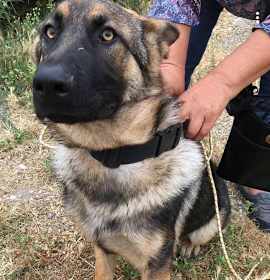
Sarah
German Shepherd Dog
Female, 5 yrs 4 mos
Los Angeles, CA
Good with dogs
Not good with cats
Spayed or Neutered
Shots are up-to-date
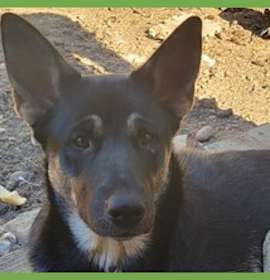
Bronagh
German Shepherd Dog Siberian Husky
Female, 1 yr 6 mos
Los Angeles, CA
Not good with dogs
Not good with cats
House-trained
Spayed or Neutered
Shots are up-to-date
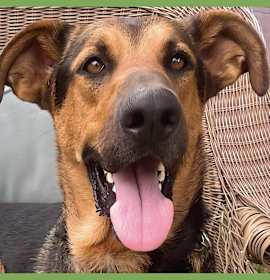
Tucker
German Shepherd Dog Doberman Pinscher
Male, 4 yrs 5 mos
Los Angeles, CA
Good with dogs
Not good with cats
House-trained
Spayed or Neutered
Shots are up-to-date

Mrs. Mia Wallace
German Shepherd Dog Alaskan Malamute
Female, 7 yrs 2 mos
Los Angeles, CA
Not good with dogs
Not good with cats
Needs special attention
House-trained
Spayed or Neutered
Shots are up-to-date

Kona
German Shepherd Dog Dutch Shepherd
Male, 4 yrs 8 mos
Los Angeles, CA
Not good with dogs
Not good with cats
Needs experienced adopter
House-trained
Spayed or Neutered
Shots are up-to-date

Samantha
German Shepherd Dog Doberman Pinscher
Female, 2 yrs 9 mos
Los Angeles, CA
Not good with dogs
Not good with cats
Shots are up-to-date
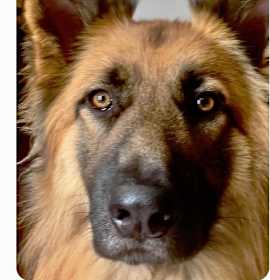
DODGER
German Shepherd Dog
Male, 2 yrs 7 mos
Los Angeles, ME
Good with dogs
Good with cats
House-trained
Spayed or Neutered
Shots are up-to-date
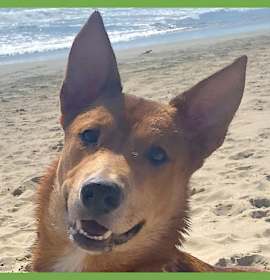
Chief
German Shepherd Dog Labrador Retriever
Male, 4 yrs 4 mos
Los Angeles, CA
Good with dogs
Good with cats
House-trained
Spayed or Neutered
Shots are up-to-date

Sarah
German Shepherd Dog
Female, 5 yrs 4 mos
Los Angeles, CA
Good with dogs
Not good with cats
Spayed or Neutered
Shots are up-to-date

Bronagh
German Shepherd Dog Siberian Husky
Female, 1 yr 6 mos
Los Angeles, CA
Not good with dogs
Not good with cats
House-trained
Spayed or Neutered
Shots are up-to-date

Tucker
German Shepherd Dog Doberman Pinscher
Male, 4 yrs 5 mos
Los Angeles, CA
Good with dogs
Not good with cats
House-trained
Spayed or Neutered
Shots are up-to-date

Mrs. Mia Wallace
German Shepherd Dog Alaskan Malamute
Female, 7 yrs 2 mos
Los Angeles, CA
Not good with dogs
Not good with cats
Needs special attention
House-trained
Spayed or Neutered
Shots are up-to-date

Kona
German Shepherd Dog Dutch Shepherd
Male, 4 yrs 8 mos
Los Angeles, CA
Not good with dogs
Not good with cats
Needs experienced adopter
House-trained
Spayed or Neutered
Shots are up-to-date

Samantha
German Shepherd Dog Doberman Pinscher
Female, 2 yrs 9 mos
Los Angeles, CA
Not good with dogs
Not good with cats
Shots are up-to-date








